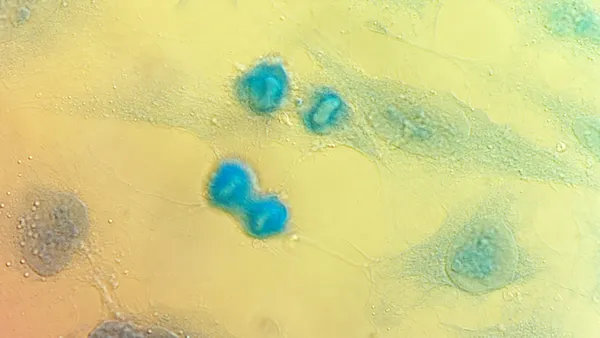Dive Brief:
- Freenome has published data in JAMA from the pivotal trial of its blood-based test for colorectal cancer.
- The paper, which Freenome published Monday, contains similar key findings as the company’s data release in April 2024. Back then, analysts said the results were good news for Freenome’s competitors Exact Sciences and Guardant Health.
- Freenome is aiming to complete all modules of its premarket approval submission in mid-2025. If approved, uptake will depend on the U.S. Preventive Services Task Force’s position, an expert group that recommends standards for preventive services like cancer screenings.
Dive Insight:
The trial enrolled almost 49,000 people aged 45 years to 85 years who had an average risk of colorectal cancer. In the cohort of around 27,010 evaluable participants, Freenome reported 79.2% sensitivity for colorectal cancer and 91.5% specificity for advanced colorectal neoplasia compared to colonoscopy. The study met its primary endpoints.
Sensitivity for the detection of stage 1 cancer was 57.1%, compared to 100% for stage 4 tumors. The test was least effective at detecting advanced precancerous lesions, achieving a sensitivity of 12.5%. The result was below the pre-specified threshold, causing the trial to miss a secondary endpoint. Freenome reported 29.1% sensitivity for high-grade dysplasia and carcinoma in situ, types of abnormal cells.
The JAMA paper includes a pre-specified analysis that weighted test performance to match the sex and age distribution of the U.S. population. The sensitivity for advanced precancerous lesions and high-grade dysplasia and carcinoma in situ was 13.7% and 30.5%, respectively, in the pre-specified analysis. The test also achieved a higher sensitivity (63.5%) for stage 1 cancer in the analysis.
The five-year survival rate for colon and rectal cancer is around 90% when people are diagnosed with localized disease, according to the American Cancer Society, compared to below 20% in people whose cancer has spread to distant parts of the body. Early detection is therefore critical to ensuring positive outcomes.
Based on cross-trial comparisons, Freenome’s blood test appears less effective at detecting precancerous cells than Exact Sciences’ stool-based Cologuard Plus. Exact Sciences has reported 43% sensitivity for advanced precancerous lesions and 74% sensitivity for high-grade dysplasia.
Freenome said it is working to improve the detection of advanced precancerous lesions through “a test versioning strategy focused on assay and algorithm improvements.”










